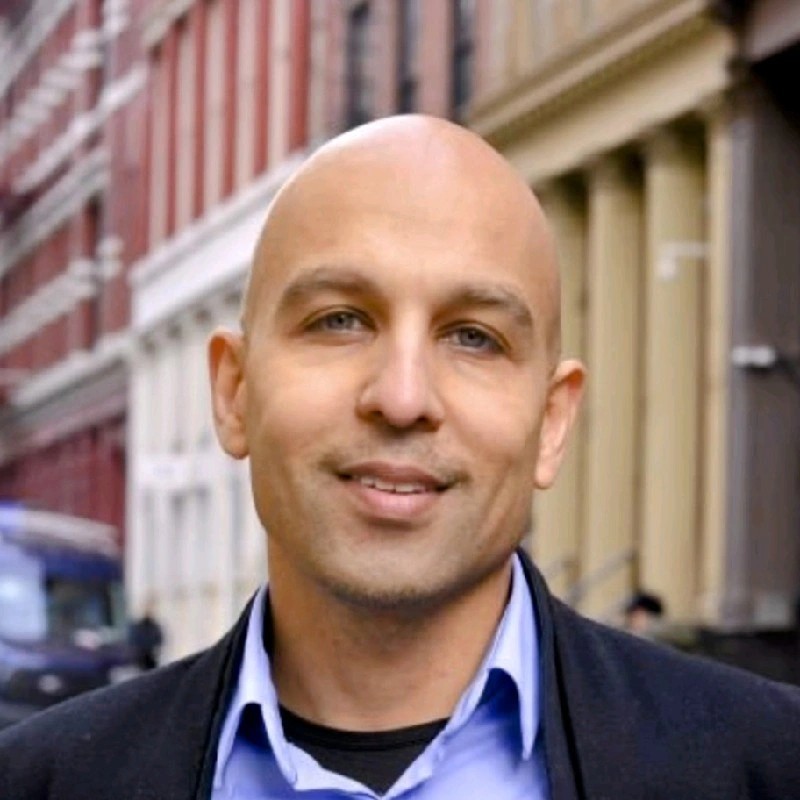Latest
|
Macro Economy
Latest
|
Consumer Finance
AI
|
Latest LLMs
CX/CS
|
Fintech
Latest
|
AI Infrastructure
Enterprise
|
ROI of AI
AI
|
Ethics & Safety
Latest
|
Politics & Policy
AI
|
Enterprise AI
AI
|
Big AI
Latest
|
Consumer Banking
Latest
|
Fintech Funding
AI
|
AI in Fintech
CX/CS
|
Fintech
AI
|
Health Tech
AI
|
AI Governance
Latest
|
LLMs
Latest
|
Fintech
AI
|
Open Source
AI
|
AI Security
Enterprise
|
Cloud Security
Latest
|
Macro Economy
Enterprise
|
Enterprise Solutions
AI
|
GRC
AI
|
AII Adoption
AI
|
AI Ethics
AI
|
Healthtech
CX/CS
|
AI in CX
AI
|
Quantum Computing
AI
|
Cybersecurity
Latest
|
Healthtech
CX/CS
|
AI Adoption
AI
|
AI
AI
|
Safety and Compliance
Latest
|
Big Tech
AI
|
Consumer Tech
AI
|
AI Ethics and Risks
CX/CS
|
AI
Enterprise
|
Data and Privacy
Latest
|
LLMs
Latest
|
Banking and Blockchain
AI
|
Healthtech
Enterprise
|
AI in the Enterprise
AI
|
AI Risk and Compliance
AI
|
AI Arms Race
Enterprise
|
AI
Latest
|
LLMs
CX/CS
|
Compliance
CX/CS
|
Great CX
CX/CS
|
CS in Blockchain
AI
|
AI News
Enterprise
|
AI
|
CX/CS
|
CX/CS
|
AI
|
CX/CS
|
AI
|
AI
|
Enterprise
|
AI
|
CX/CS
|
CX/CS
|
Enterprise
|
Enterprise
|
Are regulatory hurdles holding back AI's progress in biotech?
⋅
April 10, 2025

Key Points
AI has the potential to revolutionize biotech by rapidly analyzing discovery scenarios that humans would take much longer to evaluate.
Junaid Mian, Venture Partner at 1435 Capital, warns regulatory hurdles must be reduced to allow AI-driven innovations to reach the market faster.
There's a regulatory side for biologics that has to be a lot more streamlined. The regulatory hurdles have to come down in order for these products to hit the market faster.
Junaid Mian
Venture Partner | 1435 Capital
In biotech, the potential for AI to have a groundbreaking impact at a speed once only imaginable hinges on the industry's ability to embrace it. AI could be the defining difference-maker of our generation, but it may require getting out of the way to let it happen.
Junaid Mian, Venture Partner with 1435 Capital, a VC firm focused on growth stage companies from Seed through Series C across multiple industries, argues that regulatory frameworks need to evolve to realize the major progress AI is capable of delivering.
AI and the expanded horizon: "With AI, you can explore a much wider range of potential scenarios in biotech than humans typically consider. AI can identify patterns and connections across massive datasets that might be missed by even expert teams," Junaid explains. "AI can process these scenarios in seconds that humans around a table would probably take a week or month to review and still be talking about it."
No stone unturned: According to Junaid, AI offers a dramatic advantage over traditional research methodologies, expanding our views of risk and opportunities: "AI can literally have all this data and say, 'Did you think about this risk? Did you think about that risk? What's the probability of this risk?' You can iterate those scenarios back and forth at the speed of thought to say, 'Okay, this is the bigger picture that we did not see,'" he notes. "It gives you more knowledge to deal with that you just didn't have before."
Regulatory evolution: However, Junaid believes current regulatory structures represent a significant bottleneck to innovation. "There's a regulatory side for biologics that has to be a lot more streamlined. As scientific capabilities accelerate, regulatory frameworks need to evolve accordingly. This doesn't necessarily mean eliminating regulations, but rather creating more adaptive processes that can maintain safety standards while accommodating breakthrough technologies."
With AI, you can explore a much wider range of potential scenarios in biotech than humans typically consider. AI can identify patterns and connections across massive datasets that might be missed by even expert teams working with traditional methods.
Junaid Mian
Venture Partner | 1435 Capital
Operation Warp Speed: He points to the COVID-19 vaccine development as evidence of what's possible when multiple factors work together to accelerate innovation. "Operation Warp Speed demonstrated how multiple factors working in concert can accelerate biomedical innovation. This included not just streamlined regulatory processes, but also unprecedented public-private partnerships, massive funding commitments, and parallel clinical trial phases," he says. "This is the kind of pace that we need to work at."
A different ballgame: Junaid emphasizes that different biotechnology approaches require distinct regulatory considerations. "Regenerative medicine, gene therapy, and immunotherapy are not the same as bringing a small molecule to market. It's a different ballgame," he explains. "Regardless, regulatory frameworks need to evolve because the science is accelerating."
Out of the woodwork: Adapting these frameworks, Junaid suggests, would catapult scientific potential currently hindered by regulatory complexity. "Once people see those frameworks evolve, there'll be researchers coming out of the woodwork ready to move forward," he predicts. "Consider a regenerative medicine team that has developed promising stem cell therapies for treating spinal cord injuries. Despite early success in lab studies, they might hesitate to advance to clinical trials because the regulatory pathway for these therapies remains lengthy and uncertain. Some promising research may face delays in commercialization due to regulatory complexity, with studies showing that academic researchers report regulatory navigation as a significant barrier to translating their work into clinical applications—and that's a tremendous loss for medical advancement."

